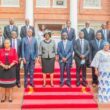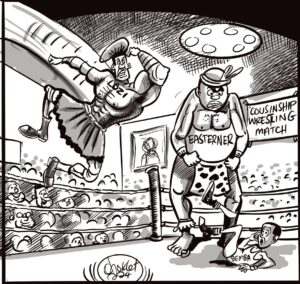The Non Governmental Gender Organisations Coordinating Council (NGOCC) has described as painful the decision by the President to fire former finance minister Margaret Mwanakatwe and the revocation of Mumbi Phiri’s nomination as Member of Parliament.
And NGOCC has bemoaned the lack of resolve by political parties to ensure an increased number of women in leadership positions.
In a statement, Monday, NGOCC board chairperson Mary Mulenga stated that the Head of State should have replaced the two with other women to help attain gender parity.
“While the Head of State has the prerogative to appoint and disappoint, the recent reshuffles are without doubt revealing on the Patriotic Front (PF) and President Edgar Lungu’s commitment to the attainment of Gender parity for women in decision making positions. We expected that the Head of State could have replaced the two Women with other capable and qualified women. The single decision to revoke the appointment of Ms, Mumbi Phiri from Parliament has further reduced the number of women in Parliament. The number of women in Cabinet has also further reduced because of the dismissal of Hon. Mwanakatwe.
Zambia is a signatory to various statutes including the SADC Gender Protocol that requires the 50 – 50 representation of both women and men in decision making positions. Article 69 of the Republican Constitution is instructive on nominations to Parliament by the President and we quote: ‘The President may nominate a person referred to in Article 63 (2) (b) where the President considers it necessary to enhance the representation of special interests, skills or GENDER in the National Assembly’. The decision therefore by the President is without doubt painful for the women’s movement,” stated Mulenga.
And in an interview, Mulenga wondered why the PF and UPND fielded male candidates for the Katuba by-election which was necessitated by the death of area member of parliament Patricia Mwashingwele.
“First of all, I don’t think it’s an issue of the seat belonging to a woman, I think our ultimate is based on policy. The AU protocol which Zambia has ratified talks about the 50-50 representation on leadership positions so I think that is the premise on which we base our arguments and if Zambia as a country that has ratified this protocol then i think there must be or there should be some sense of wanting to implement that and it only comes at such opportunities,” Mulenga said.
“And as the seat belonged to a woman, our colleague Patricia Mwashingwele, may her soul rest in peace, and even with Patricia having been there still if you look at the percentages in parliament, very very low, far below the 50-50 representation we are talking about. And so with the death of Patricia, what it means statistically is that the numbers have gone down. So for our political parties to field men and if unfortunately one of the men wins, I know there is a woman fielded by the UPPZ and we give a thumbs up to them, but if that seat is going to go to a man, it will just reduce numbers in these positions and that is where it makes it very sad.”
Mulenga wondered why the political parties were not making deliberate efforts of front women.
“We did appeal, just after the late passed on, to field a woman. It’s not like they don’t have women in their parties and they field men, what does that say? They don’t have any women that are qualified to be fielded in those positions, I don’t think so. I personally spoke to the Zambia National Women’s Lobby who is a member of the NGOCC to say, ‘ladies, I think let us get our act together’ and I was told that actually, there are women and the political parties themselves identify them but it just surprises us really. So our colleagues need to get serious about the AU protocol that Zambia has ratified,” said Mulenga.












